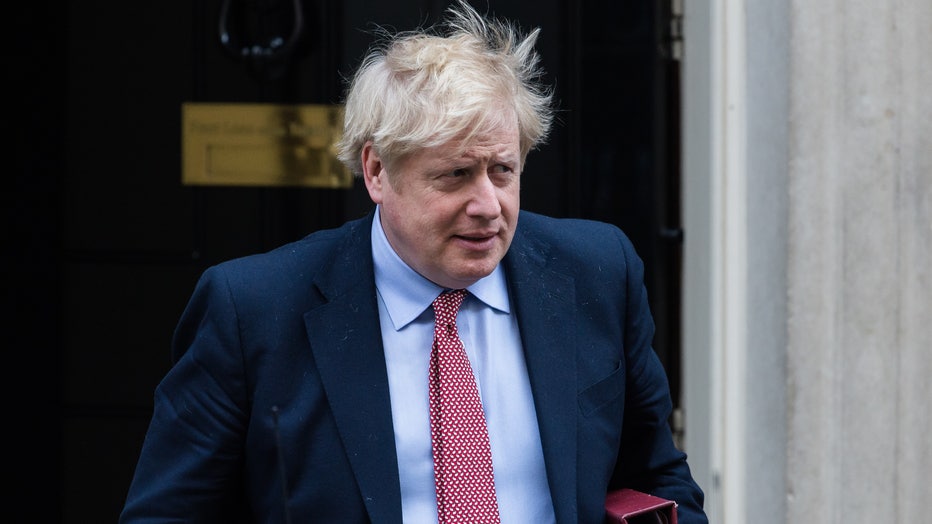Boris Johnson warns UK must prepare for leaving the EU without a deal


LONDON (AP) -- British Prime Minister Boris Johnson said Friday that the U.K. must prepare for a no-deal break with the European Union unless there is a "fundamental" change of position from the bloc.
Johnson says the EU is refusing to give Britain a trade deal like the one it has with Canada, which the U.K. is seeking.
Johnson was responding to EU leaders, who said at a Brussels summit that the U.K. needs to shift its positions to make an agreement possible.
The U.K. had threatened to walk away from the talks if a deal was not struck by the EU summit that ends Friday.
Johnson didn't go that far, but said the EU seemed to have "abandoned" the idea of a deal. He said Britain would listen if there was "a fundamental change of approach" from Brussels.
"As far as I can see they have abandoned the idea of a free trade deal. . Unless there is a fundamental change of approach we are going to go for the Australia solution," he said in London.
Australia has no comprehensive trade deal with the EU.
Britain officially left the EU on Jan. 31 but remains part of its economic structures until Dec. 31. After that, it needs a new trade agreement or will face tariffs and other economic barriers with the EU, its biggest trading partner.
Earlier, U.K. Foreign Secretary Dominic Raab chided the EU for its tone but said gaps between the two sides were narrow.
"There is a deal to be done but there needs to be flexibility on both sides," he told the BBC. "It feels a little bit lacking from the European Union."
Raab said differences remained on only two issues: EU boats' access to U.K. fishing waters, and "level playing field" rules to ensure fair economic competition between Britain and the bloc.
"The issues are really narrow now," Raab said.
The two sides are trying to strike a rudimentary free trade deal and avoid a "no-deal" exit on Jan. 1 that would hit business and jobs on both sides and compound the economic damage of the coronavirus pandemic.
But months of talks have ground to a halt on the issues of fishing -- highly symbolic for maritime nations on both sides -- and rules to ensure common regulatory standards and fair competition. The EU fears the U.K. will gain an unfair advantage by slashing food, workplace and environmental standards and pumping state money into businesses once it is free of the bloc's rules.
London took umbrage at the EU's tone late Thursday, with chief U.K. negotiator David Frost tweeting that he was surprised by the "suggestion that to get an agreement all future moves must come from U.K. It's an unusual approach to conducting a negotiation."
German Chancellor Angela Merkel, the veteran diplomat, sought to soothe tempers, saying that "we asked Britain to be willing to compromise. This of course means that we too have to make compromises."
Chief EU negotiator Michel Barnier signalled he expected the talks to continue. "The negotiations aren't over," he said. adding that his team would be London-bound for more talks next week and planned to host negotiations in Brussels the week after that. Britain has not publicly agreed to that timetable.
He also insisted that EU negotiators "are prepared to speed up negotiations," countering Frost who said in a tweet: "Surprised EU is no longer committed to working `intensively' to reach a future partnership."
Trust between the two sides, already frayed by years of Brexit acrimony, took a nosedive last month when Johnson introduced legislation that breaches parts of the withdrawal agreement he himself signed with the EU only last year.
The European Parliament, which must approve any deal, has vowed not to approve any trade deal if the U.K. government doesn't withdraw this legislation. Britain says the bill, which has yet to become law, is needed as an insurance policy in case the EU behaves unreasonably after Brexit.

